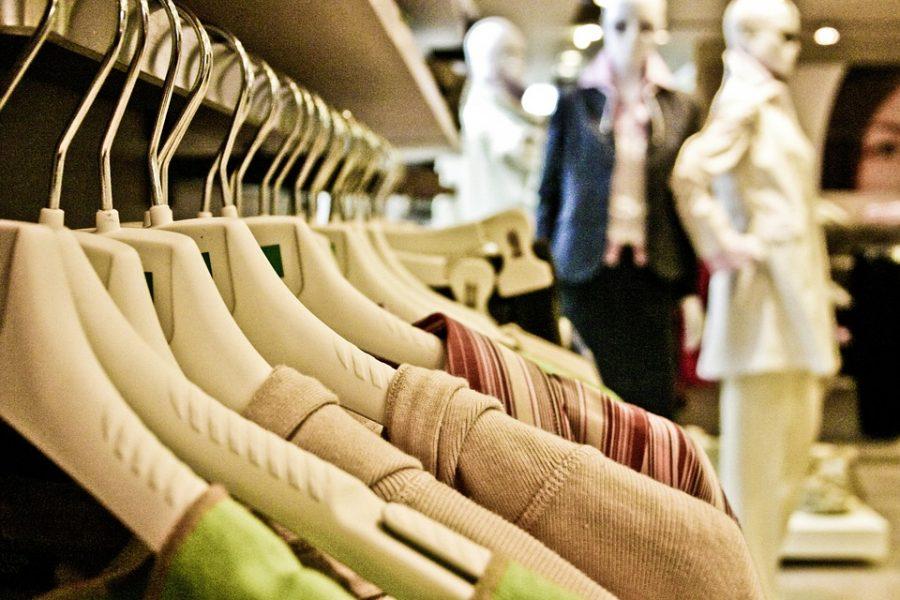The Fabric of Our Culture: Ethical Shopping
Back to school clothes shopping is a parenthood obsession. Don’t I already have clothes? Yes, but this is the season’s excuse for consumerism. As a kid, the task seemed useless. Now, it seems reckless. Even past the age of growth-spurts, though, we might want our clothes to reflect the person we’re growing into. We want our clothes to evolve with us. Fashion especially needs to evolve, it’s been in some pretty toxic relationships — literally. Fashion needs to learn to love the planet, and no matter how much lycra you use, fast fashion is really inflexible.
What’s the problem?
Fast fashion entirely disconnects from the problems it creates, constantly pumping new life into the market while leeching off of the planet. That sounds dramatic, I agree, but it’s true. I’m sure we have all heard the cyclic wrist-slapping of companies, like Gap, for the use of sweatshops and cruel work conditions. Unfortunately, as we can guess, this has not been an isolated incident. Even if clothing companies took an interest in the conditions of their employees, they have more to do to clean up their act.
Fast fashion tends to disregard environmental concerns, from water pollution to the general waste of textiles. It’s a mess. Vivid shades and patterns worthy of the next Instagram story are achieved using toxic chemicals. Surprisingly, dyeing textiles has become the second-worst contributor to the pollution of clean water right after agriculture. Other problems sneak in almost undetected. Let’s consider polyester, the Jake Gyllenhaal of the apparel industry. It’s cute and soft but can play an unexpectedly fantastic villain. First, it’s petroleum-based which means that it comes from nonrenewable sources. Second, polyester microfibers also get swept away by conventional washing machines, leading to further water pollution.
That’s a lot, and it’s not even all of it. Question is, what can we do?
Can we do anything?
We are a generation that gets slapped over the head everyday by new reports on environmental damage and with those reports comes the expectation that this is our issue to clean up. It can be daunting, soul-crushing even. We can find ourselves part of groups that speak passionately about the planet but may often feel apathetic towards action. Where do you even start? Any impact looks so small when measured up against it all. This is especially the case when it’s hard to even feel culpable in the shadow of this massive environmental inheritance.
Assistant professor of the Philosophy Department at the University of Utah, Carlos Gray Santana, walked through part of this conundrum. To what extent should we assume responsibility? Although his classes on environmental ethics focus primarily on food, our attitude can take on similar characteristics across the board when it comes to the consequences of our consumption. Santana shared an example of one author, Grace Boey, who concludes that our choices don’t really make a difference, but hey, maybe you want to feel some integrity between your behavior and values? Well, that’s a little fatalistic. I prefer Santana’s answer.
“She doesn’t go far enough,” he says. “It’s true that deep systemic change needs to take place. But that sort of systematic change often requires groundwork, in the form of change in social norms,” he said. “And social norms are established and stabilized by the perception that most of the people whose opinions we care about have adopted that norm. This means that, even though you and your friends buying hemp shirts won’t directly make a notable difference, it can have an indirect effect by helping create a perception that there is support for a norm in favor of eco-friendly clothing. And as that norm becomes part of the fabric of our culture, it can lead to systematic structural responses which really can make the culture of our fabric more eco-friendly.”
To a point, making a statement matters. Changing our mentality needs to be our first step to show that we’re willing to do what we can, rather than feel the paralysis of needing to fix everything.
Setting new trends
Thankfully, we’ve got some options. To start with, there are already many environmentally conscious companies in America. The more affordable of these include Alternative Apparel and PACT. You might also recognize Patagonia. The great thing about these companies is that they are also aware of fair labor practices, so it’s a win-win.
Other resources are at hand, such as the Good On You app, which has a thorough rating for the ethics of over 2,000 fashion brands. Many articles compile the best and worst companies to shop at, it’s just a matter of reimagining our shopping habits.
And, if you’re like me, cheap and out of style, I would recommend the perfect loophole — a good thrift store.



